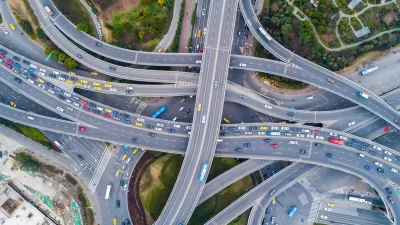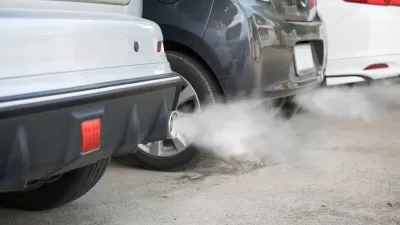Overcoming our carbon dependence should be seen as an opportunity to rethink for the better an institution largely shaped by and for fossil fuel: our cities.
With the dust settling on the Paris climate talks and the difficult process of international negotiation over, the even harder process of confronting climate change begins. Unsurprisingly, transitioning to a less carbon-dependent economy and society will require sacrifice, hard work, open dialogue, and strict accountability—not to mention overcoming tremendously powerful economic structures and political opposition. Yet, tackling climate change is not only about conjuring up herculean strength or unleashing torrents of technological innovation. Rather, overcoming our carbon dependence should be seen as an opportunity to rethink for the better an institution largely shaped by and for fossil fuel: our cities.
For the past 100 years, urban life has been indelibly shaped by the ample consumption of carbon. Our dependence on the automobile can be traced back in part to Eisenhower’s 1956 Federal Highway Act, in which the American government at all levels—city, state, and federal—transformed the American urban landscape into one entirely dominated by concrete. Decades later, it is no surprise that the vast majority of the CO2 emitted by cities is caused by automobile use.
FULL STORY: Confronting Climate Change, Rethinking the City

Alabama: Trump Terminates Settlements for Black Communities Harmed By Raw Sewage
Trump deemed the landmark civil rights agreement “illegal DEI and environmental justice policy.”

Study: Maui’s Plan to Convert Vacation Rentals to Long-Term Housing Could Cause Nearly $1 Billion Economic Loss
The plan would reduce visitor accommodation by 25% resulting in 1,900 jobs lost.

Planetizen Federal Action Tracker
A weekly monitor of how Trump’s orders and actions are impacting planners and planning in America.

Wind Energy on the Rise Despite Federal Policy Reversal
The Trump administration is revoking federal support for renewable energy, but demand for new projects continues unabated.

Passengers Flock to Caltrain After Electrification
The new electric trains are running faster and more reliably, leading to strong ridership growth on the Bay Area rail system.

Texas Churches Rally Behind ‘Yes in God’s Back Yard’ Legislation
Religious leaders want the state to reduce zoning regulations to streamline leasing church-owned land to housing developers.
Urban Design for Planners 1: Software Tools
This six-course series explores essential urban design concepts using open source software and equips planners with the tools they need to participate fully in the urban design process.
Planning for Universal Design
Learn the tools for implementing Universal Design in planning regulations.
Caltrans
Smith Gee Studio
Institute for Housing and Urban Development Studies (IHS)
City of Grandview
Harvard GSD Executive Education
Toledo-Lucas County Plan Commissions
Salt Lake City
NYU Wagner Graduate School of Public Service





























